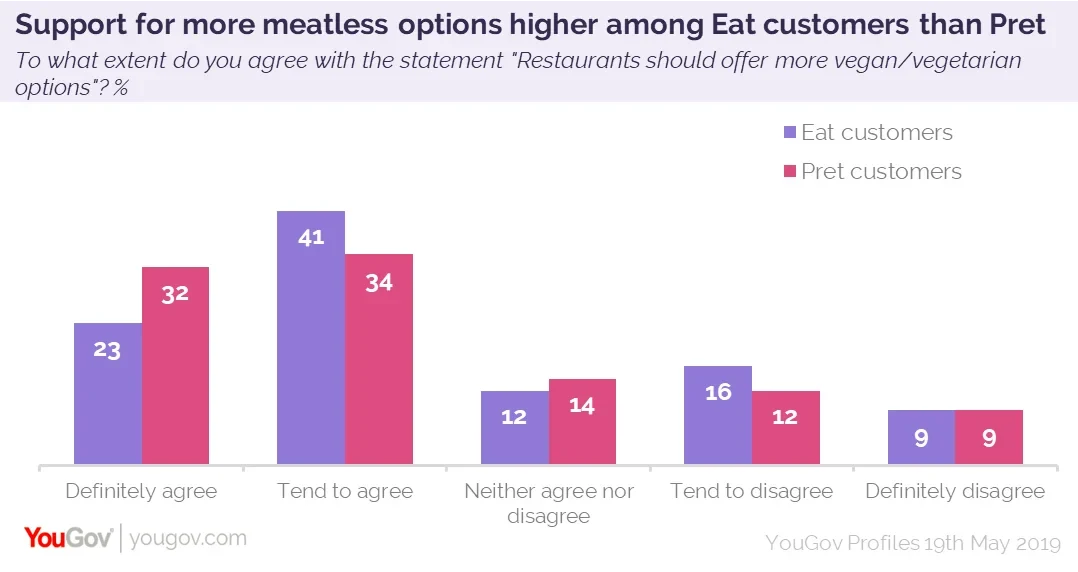High street lunchtime staple Pret a Manger recently announced that they will be purchasing one of their main competitors, Eat. Pret also announced plans to convert many of Eat’s existing shops into Pret’s vegetarian spin off, ‘Veggie Pret’, in response to growing consumer demand for vegetarian and vegan options.
Diets that exclude meat and animal-based products are now commonplace among the population, with 3% of the population currently classing their diet as vegetarian and 1% as vegan according data from a recent YouGov report. Vegetarians tend to be at the younger end of the age scale, with a quarter being 18 to 24 (25%) while a further 27% are aged 25 to 34. By contrast, only 17% of vegetarians are aged 55 and older – even though this age group makes up 38% of the general population.
But will a move towards focusing solely on vegetable-based diets alienate Pret a Manger from the 73% of the population whose diet is meat based, or is this a savvy business move in line with current trends?
Pret and Eat’s customer bases also tend to be young, with 39-41% being aged 18 to 34,. Opening further Veggie Prets could help Pret to grow their customer base even more after acquisition due to the popularity of vegetarianism in this age bracket.
A third of Eat’s customer base work in London (32%) which will also work to Pret’s advantage. Inner London has the highest proportion of vegetarians (6%) in the country followed by Outer London (5%) and it’s the same story for vegans (4% inner London and 2% in the outskirts). By inheriting Eat’s stores, Pret can grow their London worker customer base which has a higher proportion of non-meat eaters.
Support for more readily available meat-free options in restaurants is higher among Eat customers (79%) than Pret customers (64%), although this figure is still high. However, more than a fifth (23%) of EAT’s customers say they “don’t understand vegetarians”, suggesting that although Veggie Prets will undoubtedly be welcomed by vegetarians and vegans, there may be some resistance from meat-eaters who used to buy from Eat.

Image: Flickr









